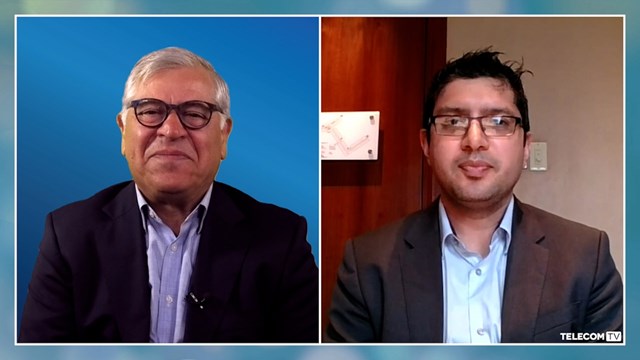
- CIOs now more valued, powerful and strategically important then ever after keeping enterprises going during the global pandemic
- Most CIOs globally have negotiated increased technology budgets this year and for 2024, according to research undertaken by Expereo
- Network performance issues dominate the daily agenda but security is the vital overarching concern
- CIO spending on 5G is growing even faster than on AI
A major new survey of more than 650 chief information officers (CIOs) across Europe, Asia and North America shows that networking technology issues and security initiatives are at the top of the technology agenda for large and medium-sized enterprises, regardless of their geographical locations, while spending on security and 5G are attracting increasing levels of CIO investment.
The survey, conducted by Expereo, the Amsterdam, Netherlands-headquartered managed internet services, cloud access and SD-WAN (software-defined wide area network) and SASE (secure access service edge) solutions company, identified the key areas of enterprise IT investment around the world, and found that whilst CIOs and other C-level executives are generally optimistic about growth, they are also concerned about global connectivity challenges that are contingent on disrupted supply chains and the ramifications of the invasion of Ukraine, fragmented geopolitics and the worsening of international relations between the west and China.
They are also worried that a lack of corporate agility and shortages of skilled staff at a time of rapid change will be to the detriment of their competitive commercial prospects and will be major barriers to global success.
The Expereo report, Enterprise Horizons: How the world’s IT leaders are investing in growth, makes it clear that the CIO role has become much more strategically important after they played such a major role in keeping companies running and connected during the Covid-19 pandemic.
It was the CIOs who kept enterprise networks and systems up, running and working at full capacity during historically unprecedented times. Having more than proven their worth, they are now more powerful than ever before and, not before time, are recognised by senior management and boards of directors as being absolutely key to the success of an enterprise rather than as big-spending cost centres to be micromanaged and kept short of cash.
That said, the report also reveals that a quarter of all executive boards still continue to categorise connectivity as a cost to the business rather than a vital asset to assure its continuing existence, and continue, routinely, to push-back on investments proposed by CIOs. Fortunately, 56% of the global CIOs surveyed said they had successfully negotiated increased technology budgets for this year at least, while 32% of respondents said their organisation’s plans for 2024 are “ambitious,” and 29% said they are “optimistic” for the coming year.
The fact is that as businesses around the world transform into cloud-first, data-driven digital enterprises, they must be able to anticipate, to change and to flex faster than ever before. The now hyperconnected world requires future-ready networks that can very quickly keep pace with evolving demands whilst also being optimised for daily duties: CIOs are having something of a golden moment, but how long that will last remains to be seen.
The report shows that all CIOs surveyed agreed that the ideal enterprise network must be robust, flexible, high-performing, scalable and easy to use. Given the now massive incidence of hybrid working, they identified a particularly pressing challenge as the ability, at a moment’s notice, to change the dynamics of the network to meet diverse connectivity requirements. CIOs also said the support of the board of directors when investments have to be made in new technologies and connectivity is critical to delivering on growth plans.
The focus, this year and next, will be on 12 key technologies
The Expereo survey shows that half of the CIO respondents think establishing and managing connectivity in new markets is the single most critical factor when it comes to ensuring successful global expansion. In addition, 49% of CIOs reported that their board of directors regard global connectivity as “a business-critical asset to growth.”
The CIOs added that, on a daily basis, network performance issues are the most pressing and immediate concerns (cited by 37% of respondents), followed by the ability to expand connectivity into new markets (also 37%) and, thirdly, dealing with the constraints and problems of legacy platforms (35%).
The report includes a ranking of the 12 areas and technologies towards which CIOs are steering increasing levels of investment on a quarter-by-quarter basis. They are: Security, cited by 44% of respondents; 5G, identified by 42%; AI and machine Learning (41%); automation and analytics (40%); internet of things (38%); public/hybrid cloud (38%); edge computing (37%); software-as-a-service (36%); SASE (33%); wide-area networking (32%); MPLS VPNs (30%); and SD-WAN (26%). (Note: MPLS VPNs are not dead…)
Expertise in these and other technologies is a rare commodity, and CIOs are discovering that it can be necessary, expedient and sensible to foster existing in-house talent as skills shortages continue to plague the IT industry. The report shows that 49% of businesses are struggling to find cybersecurity experts and 41% are having trouble filling AI and machine learning roles.
The report states: “The competition for talent is real. There are few skilled experts for key new technologies, and they are in high demand.”
Some 46% of CIOs surveyed in the Enterprise Horizons report said they are up-skilling current employees, while the same proportion are increasing their focus on AI and automation to meet their operational needs. However, just 36% are increasing their efforts to recruit new staff (a difficult, lengthy and expensive process).
It’s not all positive news from the CIO community, though. The downside is that 28% of CIOs are seeing important projects being “de-prioritised” and 23% have been required to cut headcount and make some valued staff redundant. One ray of hope for the near- and medium-term future is that it has become considerably easier and simpler to recruit remote employees: The survey found 43% have used such hiring options and 38% of surveyed CIOs now have teams scattered across various locations and markets.
CIOs are also trying to reduce the work overload on their teams by applying AI tools for repetitive tasks – to accelerate the pace of innovation. Certainly, the new generative AI (GenAI) tools that are coming onto the market have the potential to optimise operations, reduce costs and increase productivity, as well as empower employees and boost customer satisfaction, but concerns are mounting.
The CIOs surveyed said they are using AI “responsibly” but it will, for better or worse, soon have a huge impact on all organisations – there are real concerns, and increasing evidence, that AI-enabled automated processes will replace manual tasks of some human beings and that jobs will be lost. The report concludes: “Many IT leaders are exploring the role AI can play in fuelling business growth, but it’s critical to retain a human-focused approach. Human intelligence will always be required to ensure that your AI and machine-learning tools are relevant, ethical and appropriate.”
- Martyn Warwick, Editor in Chief, TelecomTV




